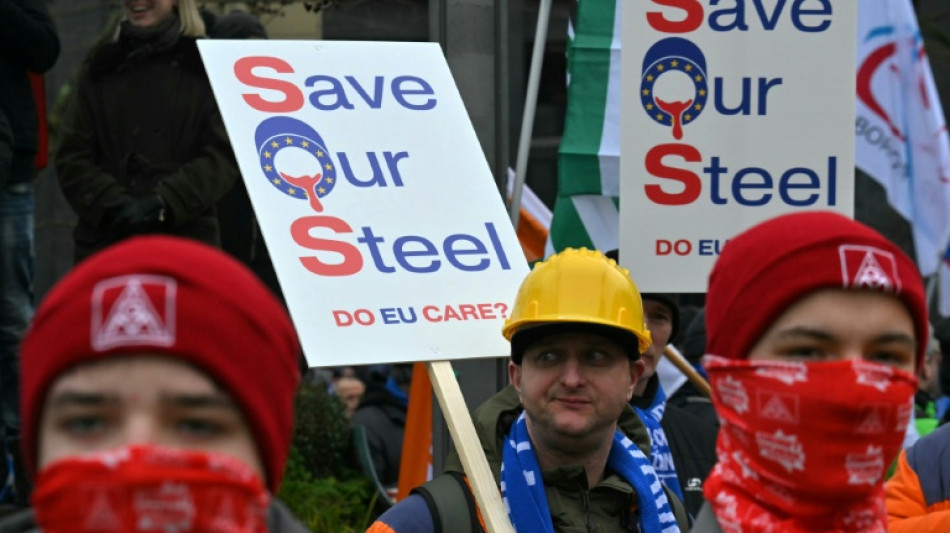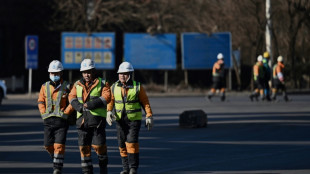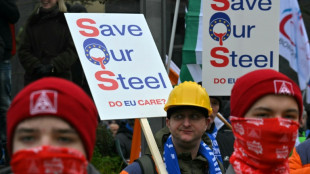

Steel decline sparks protests and a movie in Belgium
Thousands of steelworkers took to the streets of Brussels on Wednesday to demand EU help for a sector whose decline is the subject of a documentary on show at Belgian cinemas.
"L'acier a coulé dans nos veines (French for "Steel flowed through our veins") hit theatres as the European steel industry is in a downward spiral, with high energy costs and Chinese competition compounding a long crisis.
The movie recounts from the "workers' point of view" seven decades of steelmaking in Belgium's southern Wallonia region, according to director Thierry Michel.
Once a steel powerhouse, the French-speaking region has gone through several painful rounds of job cuts and plant closures.
It's a "parable on globalisation and the triumph of capital", the 72-year-old Belgian filmmaker known for his socio-political documentaries on the Democratic Republic of Congo told AFP.
In November Eurofer, an industry group, said Europe's steel industry faced "irreversible decline" unless the EU and its members took "immediate action", including trade protections and ensuring affordable clean energy supplies.
The sector lost almost 100,000 jobs in the past 15 years, "with more cuts looming", the group said, adding Europe imports 27 percent of its steel, which undermines domestic production.
European producers are contending with excess industrial capacity in China that leads to cheap exports critics say have been fuelled by Chinese government support.
"All European steel sites are at risk" of closure in 2025, the president of steelmaker ArcelorMittal France, Alain Le Grix de la Salle, has told French lawmakers.
On Wednesday, several thousand workers marched through Brussels, waving trade union flags and holding signs reading "European Union, wake up!" and "save our steel".
The EU commission has promised to publish an action plan to revamp the European economy and support local industries in the coming weeks.
"There is awareness, but isn't it late?" said Michel the filmmaker.
His movie tells of the euphoria that accompanied the opening of a blast furnace on the banks of the Meuse river in eastern Belgium in 1959, with four ministers and the future King Albert in attendance.
For years thousands of Italian, Polish and Yugoslav immigrants worked alongside the Belgians at that and other sites -- in often harsh conditions.
"It was dark, there was noise everywhere, it was the devil's hole," Axel Schorkops, a worker, says in the film.
Yet, as the economy roared, "We felt like we were doing a special job," said Frederic Gillot, a union representative.
As clouds start to gather over the sector from the mid-1970s, the film chronicles demonstrations, restructuring plans, plant closures, demolitions and faltering EU support efforts.
The European steel industry currently employs more than 300,000 people, including thousands in Belgium, according to Eurofer.
B.A.Bauwens--JdB



